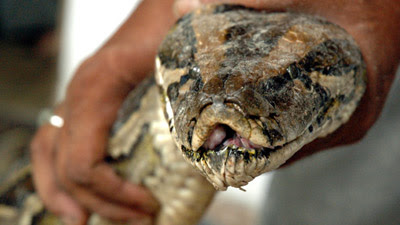
It's an odd and difficult conundrum. I believe that artists should profit, that their creative work shouldn't be passed around without their having benefited. It's unfair to deny them such when this is what they've made their career from. But then, it seems the alternative is to perpetuate a flawed system of consumption. For these artists to continue making their living, needs must be created, resources consumed and products made for purchase. It seems wrong somehow to strategically plan development such that there are perpetual needs to be met. Good business, I'll admit, but wasteful in a sense. Wasteful is a good word, I think. This doesn't make previous work any less important or less appreciated, but to create with the intention of abandonment in the future -maybe "abandonment" isn't a good word...
I don't know if I've decided my stance on the issue, but I do know that I have a problem with incessant accumulation. It can't go on forever. I'm reminded of a landfill, where one can only bury their garbage for so long, and then all the space is gone. One can't keep accumulating the new and improved forever. There are those that argue that yes they can, and so they do, but this also requires that they eventually do away with the old. And where does the old go? Where should the old go? The illusion of need appears to persist indefinitely.
On a grander scale, the "new and improved" cannot continue to come into being the same way it does today, forever. Nothing comes from nowhere, though we often opt to delude ourselves into believing otherwise. We voluntarily overlook the fact that nothing in truly inexhaustible. I don't think that any process is truly linear in form, because it's impossible for anything to occur completely independent of everything else.
And so I remain undecided, but convinced that there's a better way, a compromise. Perhaps consumption of creative work will continue without the accompanying consumption of the material. Perhaps there's an efficient way to market ideas and thoughts that will prove just as satisfying to the consumer as the purchase of something new and shiny.




